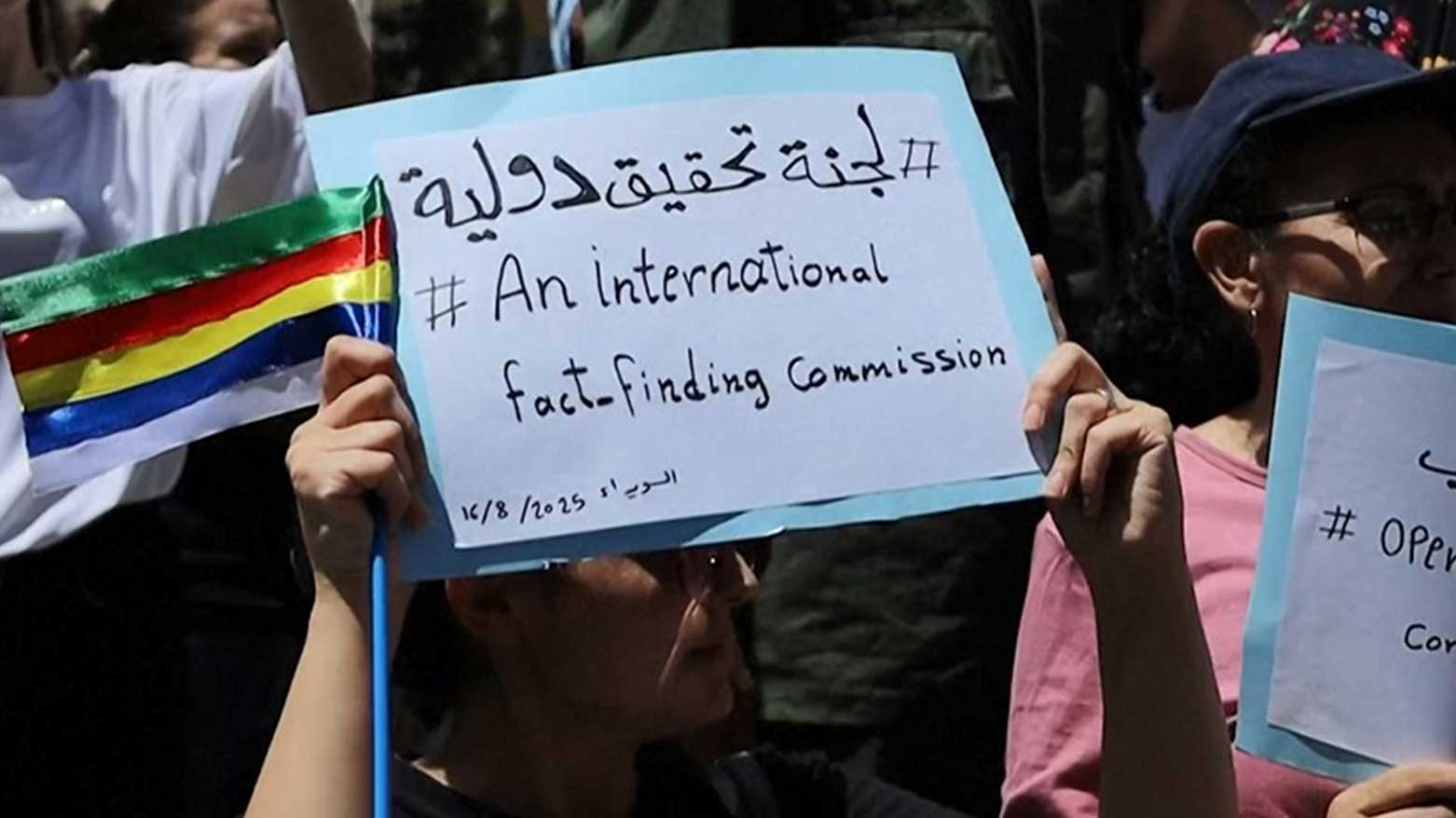Syria’s Missing Persons Commission Says Number of Disappeared Could Exceed 300,000
Syria’s transitional authorities vow justice for victims of Assad-era atrocities, yet fresh disappearances have emerged amid renewed clashes with minority groups, including Alawites on the west coast and Druze in Sweida.

ERBIL (Kurdistan24) — The head of Syria’s newly established commission for missing persons said on Monday that the number of people who vanished during decades of Assad family rule and the civil war may have surpassed 300,000.
Mohammed Reda Jalkhi, who leads the commission created in May, told state news agency SANA that its mandate spans from 1970 — when Hafez al-Assad seized power — to the present day. The body has not set a timeline for completing its work.
“Our estimates of the number of missing range between 120,000 and 300,000 people, and it could be more,” Jalkhi told AFP.
Tens of thousands of Syrians were detained, disappeared, or killed during the country’s civil war, which erupted in 2011 after former president Bashar al-Assad launched a violent crackdown on anti-government protests. Assad, who inherited power from his father in 2000, was eventually ousted in December 2024 after nearly 24 years in office.
Throughout the conflict, all parties were accused of committing atrocities. The Islamic State (ISIS) group, in particular, carried out systematic abuses, including mass executions, after capturing large swathes of Syria and neighboring Iraq.
The Assad family’s decades-long grip on power was widely regarded as among the harshest in the region. Syria’s prison system, including the notorious Saydnaya facility, became infamous for disappearances, torture, and extrajudicial killings.
“We have a map that includes more than 63 documented mass graves in Syria,” Jalkhi revealed to AFP, without disclosing details on their locations or who may be buried there. He added that work was underway to establish a national databank of missing persons.
Syria’s new authorities have pledged to deliver justice for victims of past atrocities and to pursue accountability as part of the country’s transitional phase. Though, more people went missing under Syria's new authorities in the aftermath of the recent conflicts between the Syrian government forces and minority groups, including the Alawites on the west coast and the Druze in Sweida.
In January, the president of the International Committee of the Red Cross (ICRC) warned that clarifying the fate of Syria’s missing could take years, given the scale of the crisis.
Jalkhi stressed that addressing enforced disappearances is central to building peace in post-Assad Syria. “The issue of missing persons is one of the most complicated and painful in Syria,” he said. “Our work is essential to the process of transitional justice and civil peace.”
